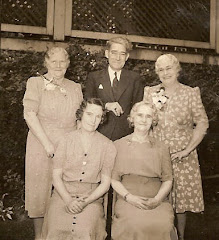(Photo credit: http://capt.clint.home.mindspring.com/breakers.html)
At the beginning of this series I'd posted a link to Tennessee Ernie Ford singing "Sixteen Tons", a song which laments the life of a coal miner. A mainstay in the song are the lyrics "I owe my soul to the company store". This refers to the lifestyle differences between the mere coal mine workers and the "esteemed" coal mine honchos.
Back in the heyday of coal mining, the mine owners didn't just own the mines, they owned the towns in which they were located. The miners lived in company owned homes, shopped at the company owned store, and, in many ways, were kept hostage by the company itself. Often the miners' pay went straight to the company to pay the rent and heating. Credits were given at the store, which took payment directly from the miners' wages.
Eckley Miner's Village is a prime example of a coal mining town, complete with the company store and a doctor's office. You can take a virtual tour of this popular Pennsylvania "attraction" on the website (the links to the videos were not working for me tonight, but I have seen them before so if a link doesn't work for you, try again later). Eckley is one of my "must-see" spots in PA if I ever make it there for my genealogy trip: My paternal grandmother and her family lived there after they'd returned to PA from Kansas in around 1915.
As we learned last week, miners' pay was generally dependent upon the amount of quality coal they brought in. If there was too much slate in the coal car of a miner, that miner's pay was docked. Given this and the practice of the coal company taking certain deductions from the miners' pay to cover their rent and food, it was really tough for someone to move up and move on; putting money aside was just not an easy thing to do even outside of the low wages to begin with.
But you better believe that if a miner wasn't pulling his weight, it was easy for the boss to get rid of him!
















